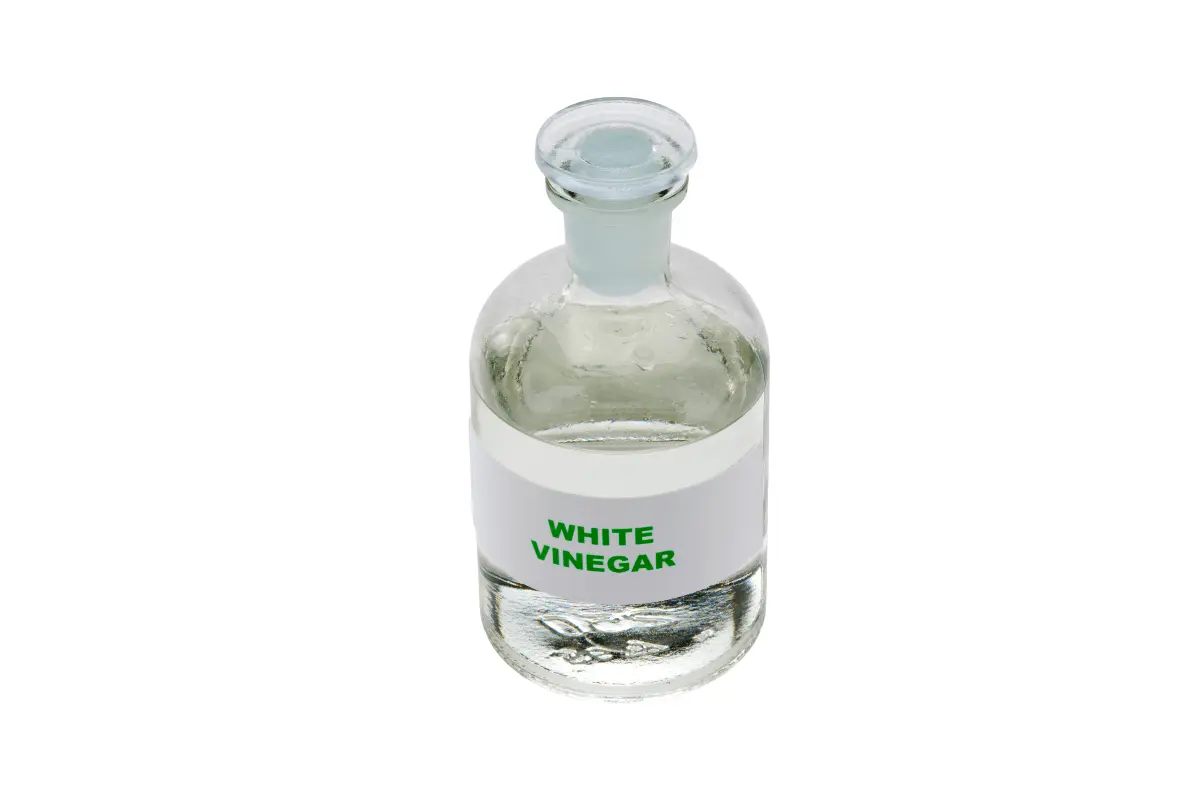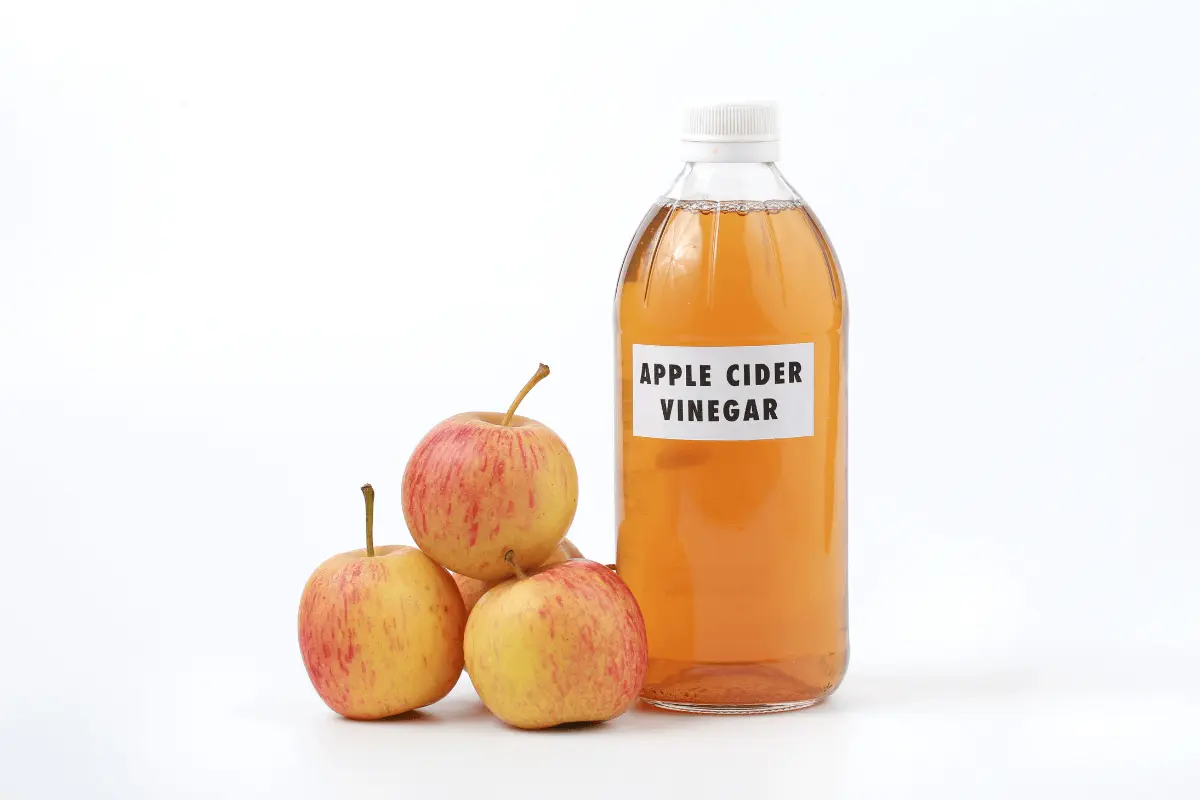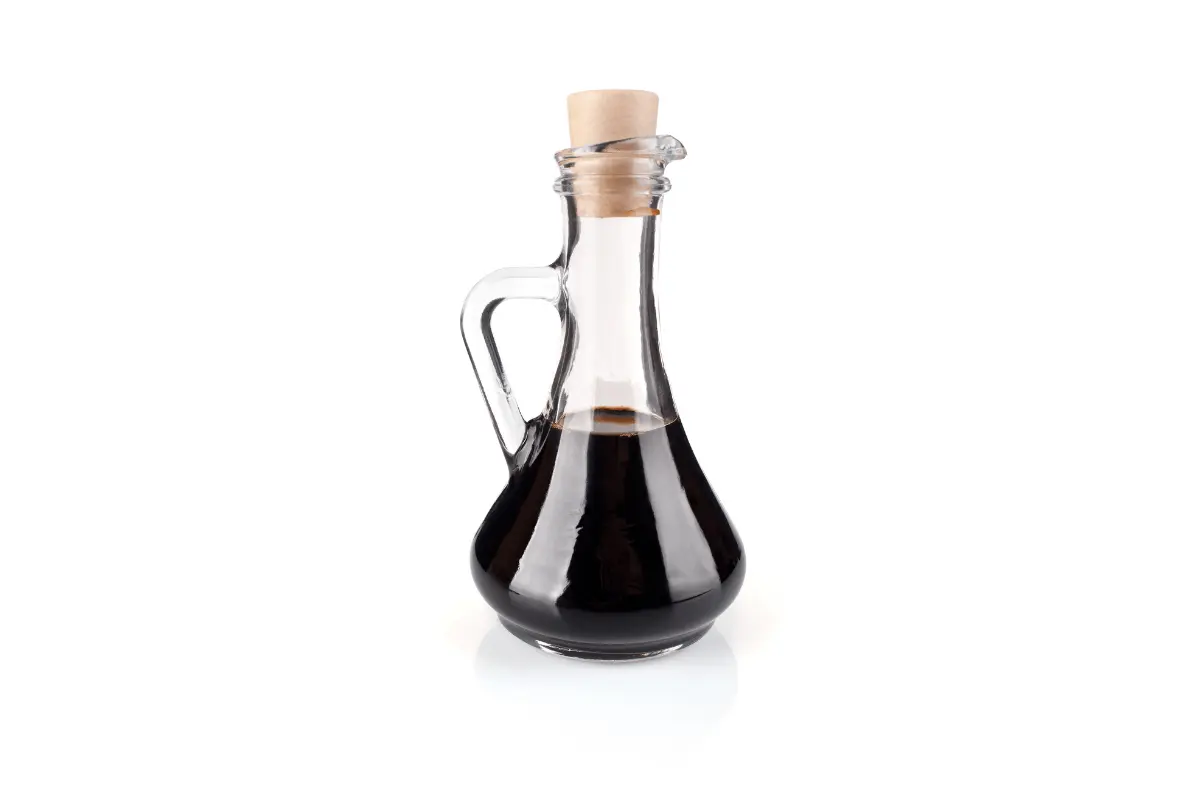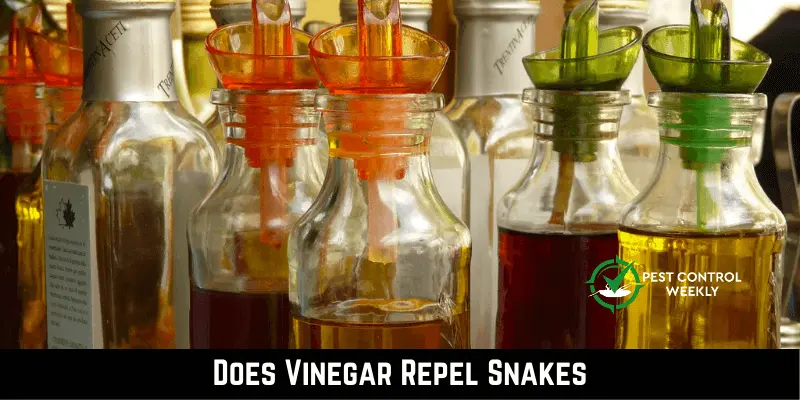Some people find snakes interesting, while others are terrified of them. The mere sight of one of these reptiles may send shivers down your spine. But could simple things like home items keep these animals away Like vinegar? Does vinegar repel snakes?
Yes, vinegar’s strong smell deters snakes from our gardens and houses. Answering this reveals a remarkable relationship between vinegar’s strong smell and snakes’ high olfactory sensibility.
This article explores commercial and natural snake repellents on this fascinating tour. Learn how vinegar repels snakes. Read on to protect your home against snakes.
Vinegar As A Snake Repellent
Unexpectedly, vinegar, a common home item, turns out to be an effective reptile repellent. The powerful smell nature of this aqueous solution of acetic acid particularly repels snakes. Their highly developed sense of smell is repelled by the pungent odor of vinegar. This forms a barrier around your home that is unseen yet impenetrable, deterring any unwanted visitors.
Vinegar mixed with water can be sprayed around the house and other locations where snakes visit. While this won’t completely get rid of snakes, especially the smaller ones, it will help a lot. Vinegar may be effective as a deterrent, but it shouldn’t be used as a replacement for expert pest management. Vinegar is an inexpensive and eco-friendly option for wildlife control that doesn’t harm animals.
How to Use Vinegar for Snake Repellent?
Vinegar Solution Preparation
Preparation of the Vinegar Solution:
- Choosing the correct vinegar kind, such as white, apple cider, or balsamic, is the first step in preparing a powerful vinegar solution that will repel snakes.
- Making this deterrence while yet being kind to the environment is a delicate balancing act. Mix a 50/50 vinegar solution and water in a big spray container.
- The vinegar’s acidity is reduced by this dilution, making it safe for your plants while preserving its effectiveness as a snake deterrent. The essential feature of this mixture is its strong scent, which deters any snake-like creature from paying an uninvited visit.
Applications
Strategic spraying of this well-formulated mixture is required for optimum results:
- Prioritize the property’s borders, ports of entrance, and potential nesting spots for snakes.
- Soak these areas completely and let the pungent odor spread throughout the area.
- Relying on the strong, snake-repelling perfume after rain or every two weeks is recommended.
- Soak cotton balls in the concoction and place them in potentially hazardous spots; the cotton balls will function as olfactory landmines, preventing snakes from entering the area.
When used properly, the mixture of vinegar and water can act as a cheap and efficient deterrent, discouraging serpentine invasion without disrupting the natural order.
Types Of Vinegar Used To Repel Snakes
White Vinegar

White vinegar is a staple in many households and is often praised for its many uses. Its pure strength is an irresistible olfactory affront to any invading serpents. This odorless liquid’s strong fragrance may be a powerful snake deterrent, producing an olfactory barrier that snakes avoid like the plague.
To set up this acetic sentry, spray a mixture of white vinegar and water throughout the perimeter of the property. The lingering, acidic aroma is a protective barrier, keeping unwanted visitors out of your home.
Apple Cider Vinegar

According to the Journal of The Royal New Zealand College of General Practitioners vinegar made from fermented apple juice has an unusual ability to deter snakes because of its aromatic scent and mild acidity. Apple cider vinegar’s nuanced, fruity scent is too strong to handle snakes’ sensitive noses. Spreading it around your property’s weak spots may deter serpentine intruders and provide a non-hazardous answer to an ongoing issue.
Balsamic Vinegar

According to the International Journal of Food Microbiology, the balsamic vinegar’s dark color and pleasant flavor might be used in our fight against snakes. It has a lovely, old smell to humans, but snakes find it repulsive. Dousing cotton balls with balsamic vinegar and carefully putting them around the property is one way to put this Italian condiment to work as a snake deterrent. The lingering odor might be quite off-putting to any snakes that happen to be visiting.
How Does Vinegar Work?
Snakes have a sophisticated sense of smell, making them the natural embodiment of delicacy. Their acute sense of smell is activated by a forked tongue that catches odor molecules in the air. This tongue, when retracted, makes contact with Jacobson’s organ, a specialized olfactory receptor, which helps the animal interpret chemical information from its surroundings. The pungent fragrance of vinegar interferes with this delicate sensory process.
White Vinegar
White vinegar’s slick, pungent aroma overpowers the snake’s senses. In response to this barrage of stimuli, their innate drive to avoid dangerous places kicks in, and they flee the vinegar-sprayed region.
Apple Cider Vinegar
Apple cider vinegar has a diverse aroma of fruity and acidic overtones that is off-putting to snakes’ sense of smell. Their highly attuned Jacobson’s organ recognizes this novel mixture as a foreign fragrance, producing a natural aversion and encouraging the animal to avoid the treated area.
Balsamic Vinegar
The powerful aged perfume of balsamic vinegar confuses the snake’s sense of smell. It leaves behind a potent, persistent odor that snakes interpret as a threat. Thus, it may be used to keep them away from a certain region.
Each variety of vinegar has its unique fragrance that works as an unpleasant mechanism against snakes, providing a straightforward, long-lasting, and non-lethal means of controlling these pests.
Other Snake Repellent Methods
Commercial Snake Repellents
Dr. T’s Snake-A-Way
This repellant is highly effective and contains a proprietary combination of sulfur and naphthalene that interferes with a snake’s ability to sense its surroundings. Upon detecting this chemical, Snakes avoid the treated area because they think it poses a physical threat to them. It’s safe for the environment and biodegradable, and it works well as a deterrent, even in the rain.
Bonide Snake Stopper
Natural elements, including clove oil, cinnamon oil, and sulfur, make up this eco-friendly lotion. For snakes, the atmosphere created by the strong scent is intolerable. Its organic makeup guarantees little environmental impact, making it a top pick among eco-conscious shoppers.
Ortho Snake B Gon
Essential scents like clove and cinnamon are used in this repellant to provide an overwhelming smell assault to any intruding snakes. The aroma works double-time as a deterrent and navigational hindrance by covering up the pheromones they leave behind. It is a great option for gardeners because it is harmless to both animals and vegetation.
Havahart Snake Shield
Havahart Snake Shield is a mixture of natural oils and sulfur that is said to confuse and repel snakes. The powerful perfume disrupts the snakes’ sense of smell, making the area seem hostile. This non-toxic remedy can protect your household against unwanted snakes without putting the health of your dogs or kids at risk.
Natural Snake Repellents
- Mothballs, formerly used to keep moths and other fabric-eating insects away from clothing, have a newfound use: keeping snakes away. One of the main ingredients, naphthalene, has a strong odor that can deter snakes. However, its usage must be carefully considered due to possible environmental dangers.
- The pungent odors released by garlic and onions make them unappealing to snakes. Spraying the property’s perimeter with a combination of garlic or onion juice can be a natural deterrent.
- Oil of Clove and Cinnamon the robust mixture of these two oils provides a strong aroma that is offensive to snakes. It is useful against these snakes when diluted in water and sprayed around potential entry points.
- Aromatic plants like lemongrass and rosemary make your yard look nice and deter snakes. Because snakes hate the smell of lemongrass and rosemary so much, you may use them as a natural and attractive barrier to keep them out of your yard.
- Marigolds and wormwood are two fragrant and colorful blooming plants that are supposed to deter snakes. Snakes can be kept out of your garden while also improving the aesthetic value of the space by planting these.
Conclusion
In conclusion, snake management needs expert pest control and commercial and natural snake repellents. Vinegar’s strong smell makes it a cheap and ecologically beneficial snake repellent, but it doesn’t guarantee safety. Dr. T’s Snake-A-Way and Bonide Snake Stopper are powerful, scientifically-formulated repellents. Mothballs and fragrant herbs are eco-friendly cures. These remedies are deterrents, not defenses. Professional pest management and these repellents can guard against snakes. Respecting nature and knowing these critters’ behaviors can assist in coexisting happily, and balancing the environment.
FAQs
References
Journal of The Royal New Zealand College of General Practitioners
Maria Gullo, Cinzia Caggia, Luciana De Vero, Paolo Giudici, Characterization of acetic acid bacteria in “traditional balsamic vinegar”, International Journal of Food Microbiology,
Volume 106, Issue 2, 2006, Pages 209-212, ISSN 0168-1605, https://doi.org/10.1016/j.ijfoodmicro.2005.06.024.
